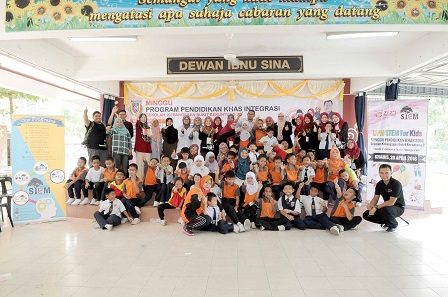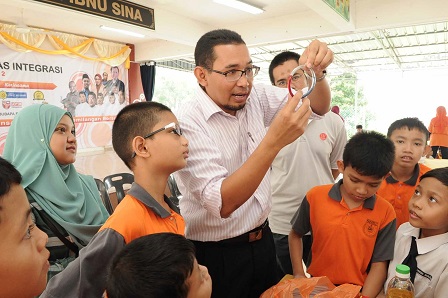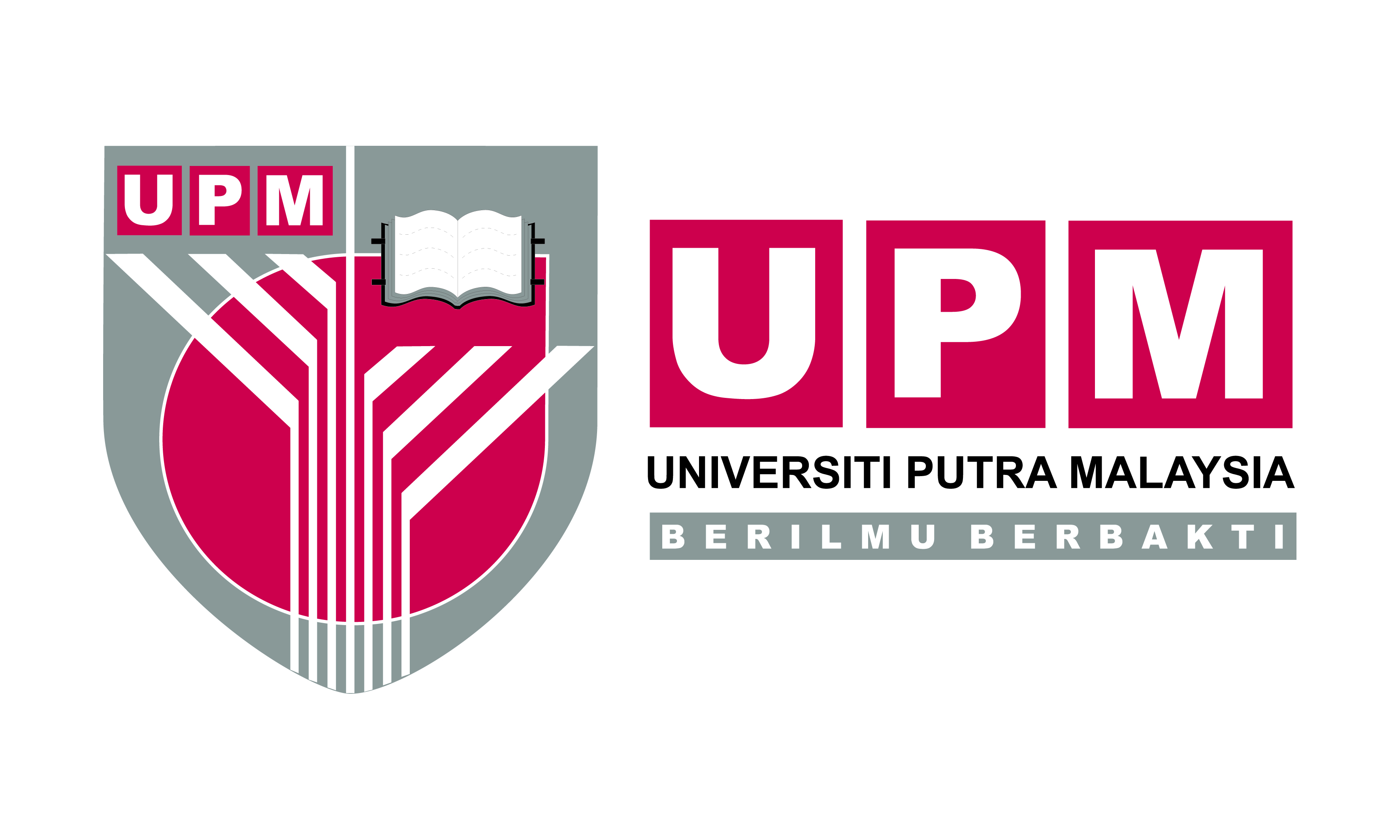
By: Dr. Suriati Paiman
RAWANG – UPM STEM Group (Science, Technology, Engineering and Mathematics) of the Faculty of Science, assisted by the Faculty of Educational Studies, Universiti Putra Malaysia (UPM) recently held a UPM STEM Scientist slot, especially for Special Needs pupils (MBK) of Sekolah Kebangsaan Bukit Beruntung 2.
The programme was participated by nine senior lecturers, four post-graduate students from the Science Faculty and 10 other students from UPM FPP’s Potential Enhancement and Caring Education (PEaCE) who acted as facilitators to 60 MBK and 160 Year Four mainstream pupils.
The programme saw the involvement of these Special Needs kids in exploring the fields of Science, Technology, Engineering and Mathematics through fun and interesting games, with each team assisted by 10 instructors and five management assistants of the Education for Special Needs children.
These MBK pupils are having various degree of learning disabilities, including autism, hyperactivity Disorder (ADHD), Down Syndrome, Cerebral Palsy, Slow Learner Disorder, Epilepsy and Dyslexia.
Special Education Senior Assistant Teacher, Ruzita Mohamad Yusoh, said MBK pupils required a multiple degree of fun and interesting activities that could attract their attention in order for them to learn like normal children.
“Classroom learning is not the only medium to educate these kids. Learning outside the classroom provides a good option for them to increase their understanding, experience and self-confidence,” she said.

On that basis, this special education program Week with the theme "A Special Child Award" lined up a slew of activities which could provide these Special Needs kids with the opportunities to use their sensory skills to understand the concepts of Science and Mathematics more easily and in a fun way.
Lecturer of Science Faculty in the Physics Department, Dr. Suriati Paiman expressed hope that this programme could raise the interest in Science and Mathematics among elementary school students as early as possible so that they could relate and associate what they have learned in school with their daily home routine.
"The basic concept of Physical Sciences, Technology, Engineering and Mathematics are applied in all the activities in accordance with the Science co-curriculum and syllabus for Year Four pupils.
"A relaxed approach similar to their daily life is used like how to produce their own playdough that can be both conductors and insulators using Mathematics components and recipes and through the use of simple materials that can be easily found in the kitchen such as flour, sugar, salt and cooking oil. All these can help attract their attention to learn and apply the designs (technological components) and come up with a simple basic circuit, " she said.
Facilitator and formerly Physics teacher, Naqiuddin Che Mohd Ibrahim, acknowledged that the program gave him a new experience in terms of the different ways to be used to communicate with mainstream pupils.
“Dr. Nurhidayati Mokhtar and I undertook a game activity where we categorized a range of games to magnetic and non-magnetic things. These Special Needs children were excited with the magnetic materials when they played with the racing cars,” he said.
Other activities they were attracted to were the challenges posed in designing a structure or building and a bridge using marshmallows and toothpicks, rocket-powered soda, and colorful rubber tubes for the making of bracelets based on the concept of density.
Senior lecturer in the Department of Chemistry, Dr Siti Nurul Ain Jamil said when the activity on making a boat using a mixture of vinegar and baking soda bicarbonate was carried out, the Special Needs kids were screaming with joy when the boat which used recycled items like plastic bottles, could move on its own and they asked whether they could make it themselves.
“This slot with scientists helps to bolster self-confidence among these children with Special Needs to explore into the field of Science which is interesting, besides enabling others, especially academicians who are experts in various fields at the universities to identify these children closely by understanding their needs and nature – these kids who naturally love to explore their surroundings. – UPM.






.jpg)